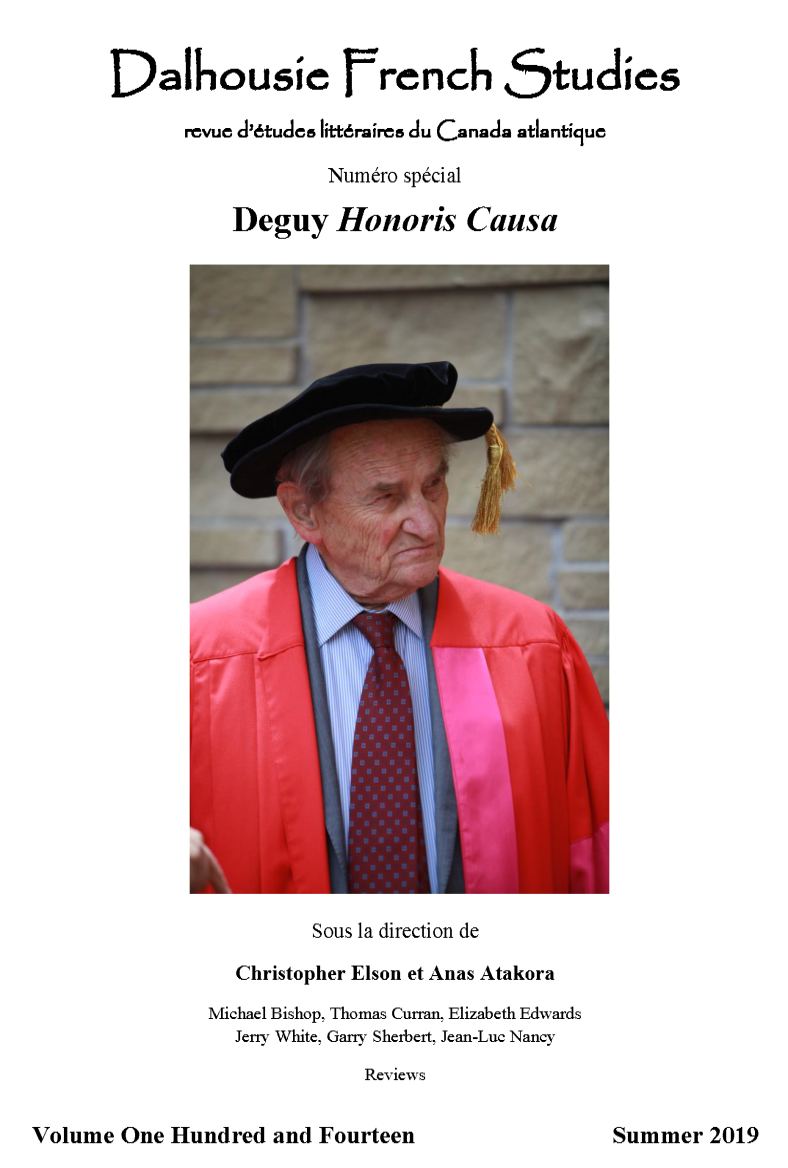Michel Deguy‘s English
Résumé
This essay seeks to understand what it means for Deguy to use English words and English expressions in his work and, by extension, to deepen our understanding of the fundamental strangeness and attractiveness of any other language for any native speaker. Utilizing Derrida‘s notion of the monolingualism of the other (transformed playfully by Deguy into the monolingualism of the self), Edwards focuses on the satirical use of English in Deguy, delineating the macaronic character of so much of his practice of citation, borrowing and adaptation of ‘anglish words.‘ Lingering in the sound-sense hesitation of this interlinguistic and intertextual inventivity, she locates the primary meanings of Deguy‘s English usage in the resistance to the confined and homogenizing space of “World-ization.”
Cet essai cherche à comprendre le sens de l‘utilisation par Michel Deguy de nombreux mots et expressions anglais, et par là , à approfondir notre compréhension de l‘étrangeté et de l‘attractivité de toute langue autre pour tout locuteur natif. Employant la notion derridienne du monolinguisme de l‘autre (transformée de manière caractéristiquement enjouée par Michel Deguy en monolinguisme de soi), Edwards met l‘accent sur l‘usage satirique de l‘anglais chez Deguy et elle cerne le caractère macaronique de plusieurs exemples de la citation, l‘emprunt et l‘adaptation des ‘mots anglés‘ par celui-ci. S‘attardant auprès de l‘hésitation son-sens de cette inventivité interlinguistique et intertextuelle, elle situe le sens fondamental de l‘usage deguyen de l‘anglais dans une résistance à l‘espace restreint et homogénéisant d‘un processus de monde-isation, la « World-ization. »


